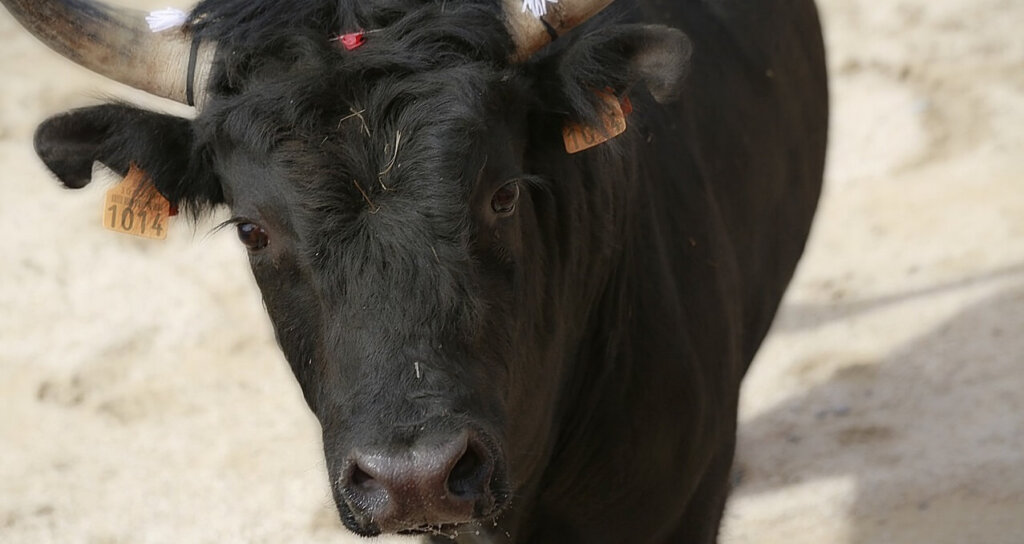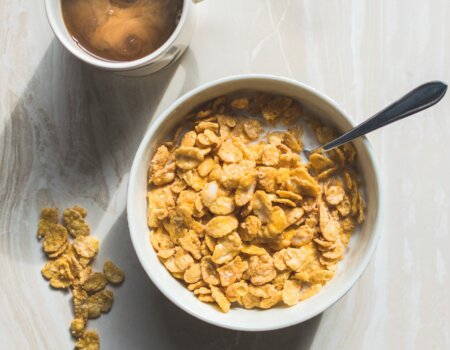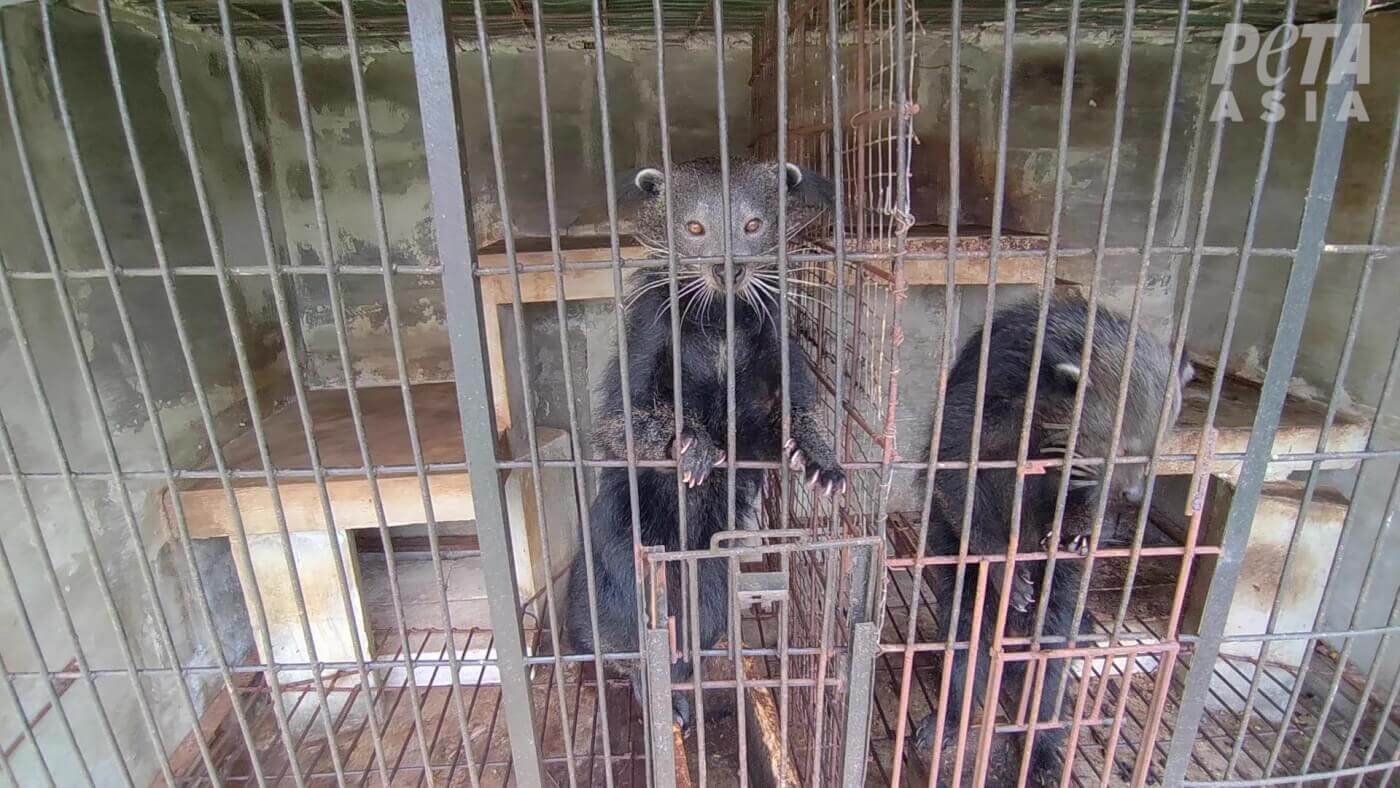
A Decade of Deception: Ongoing Cruelty in the Kopi Luwak Industry
Yet another PETA Asia investigation into the cruel kopi luwak industry reveals suffering civet cats. Despite international outcry following previous investigations spanning over a decade, nothing has changed. Kopi luwak – also known as civet coffee or cat-poop coffee – is produced from beans excreted by civet cats. It is sold globally despite the horrendous conditions in which these animals are kept.
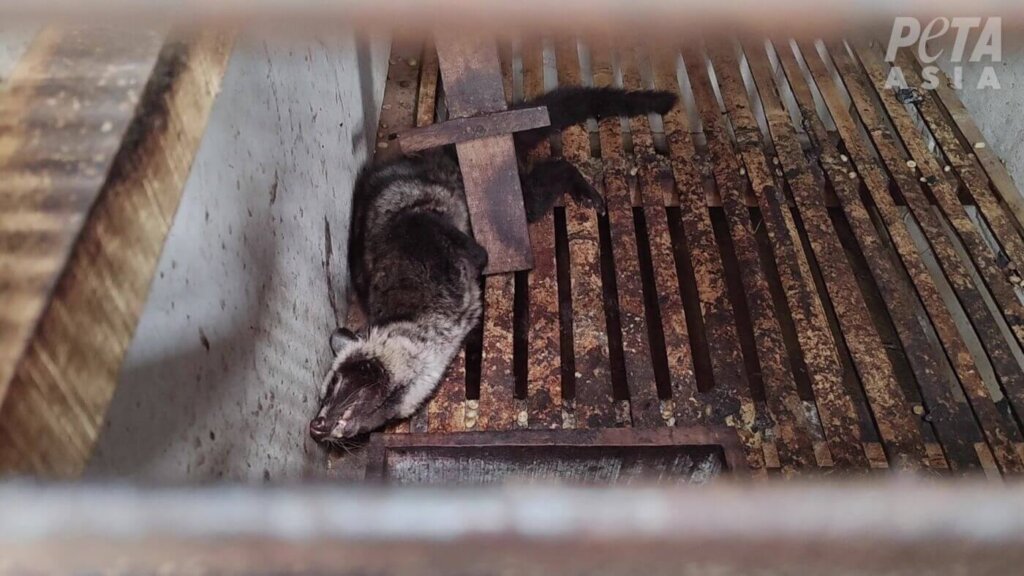
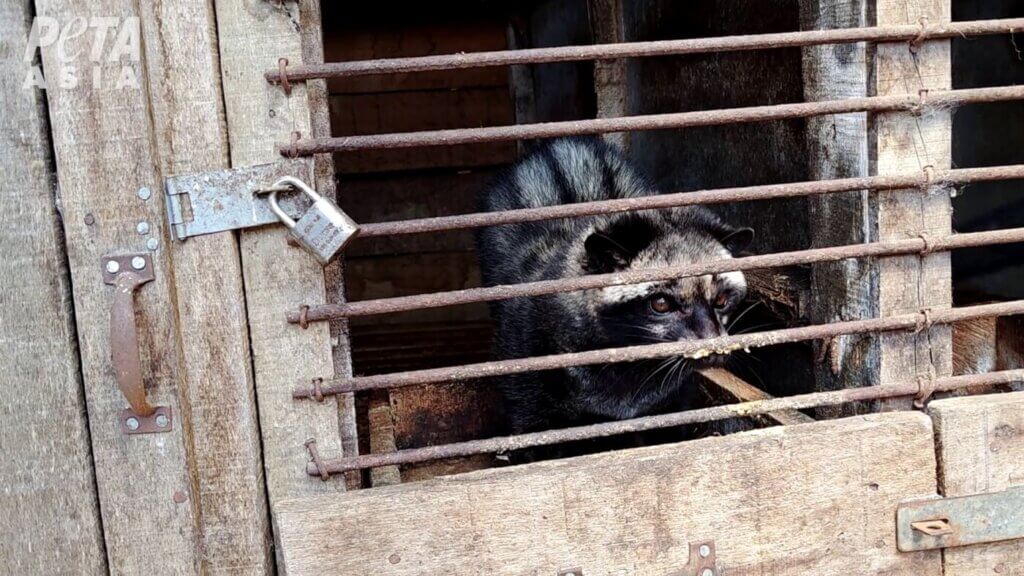
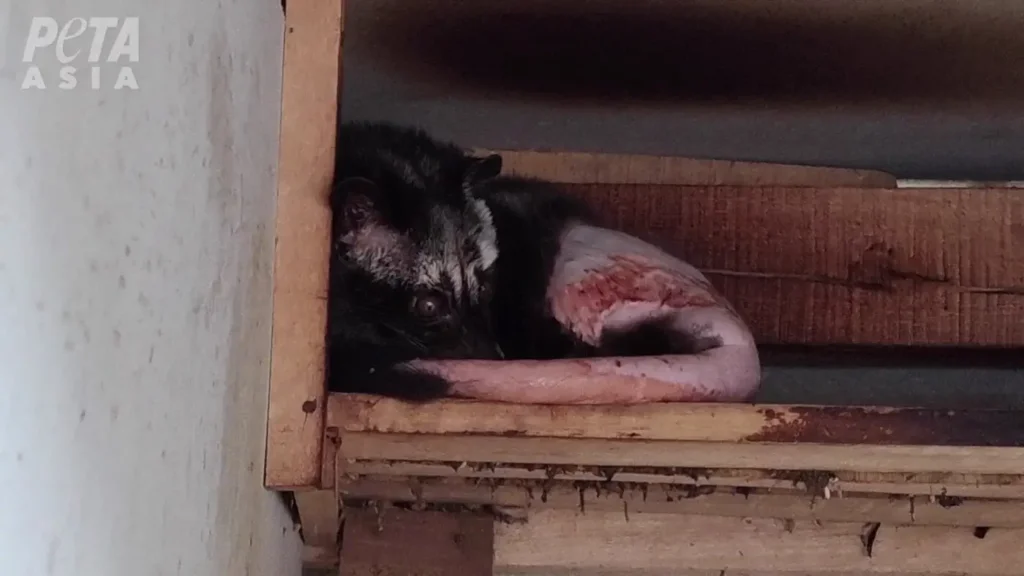
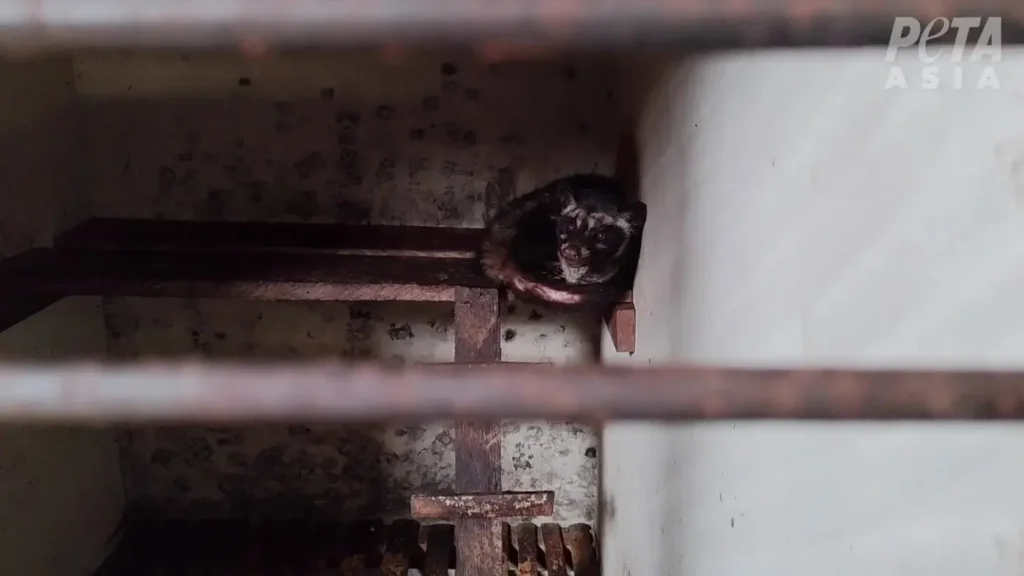
PETA Asia’s latest investigation into farms in Java, Indonesia, found sick, injured, and dying civet cats suffering in tiny, filthy cages encrusted with their faeces. With untreated open wounds and battling parasitic infestations, some of the malnourished animals were too sick even to move. PETA Asia’s investigator found one critically ill civet cat, who was too weak to stand, lying motionless in her squalid cage. The investigator alerted the farm owner – who said they wanted to “throw (the animal) away” – and rushed the animal to a veterinary clinic, but she could not be saved
Binturongs Illegally Held and Exploited for Coffee
PETA’s latest expose also revealed that one kopi luwak farmer fed coffee cherries to caged, illegally held binturongs – an animal red-listed as “vulnerable” on the International Union for Conservation of Nature Red List of Threatened Species – and that the excreted beans were fraudulently labelled and sold as civet coffee.
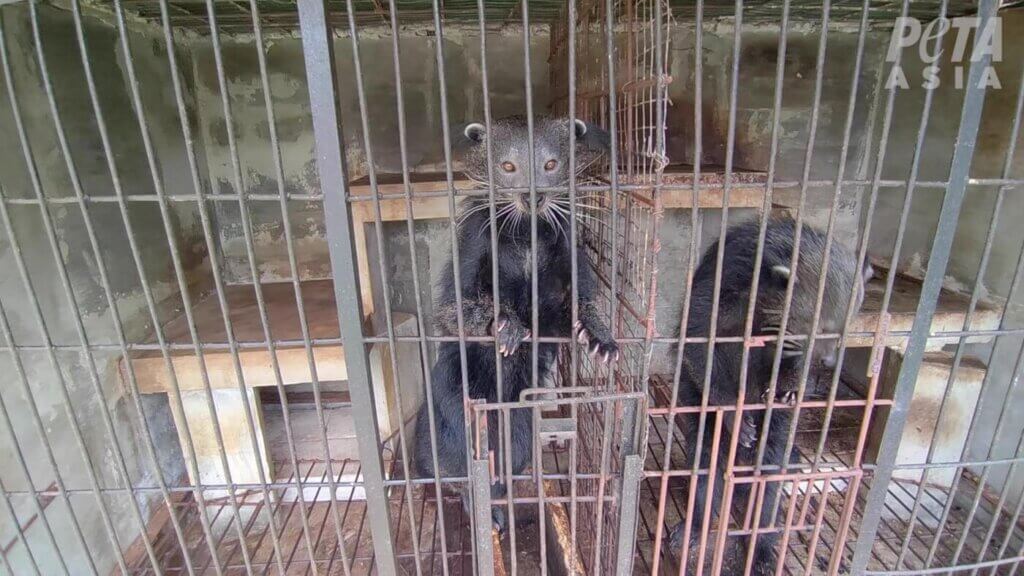
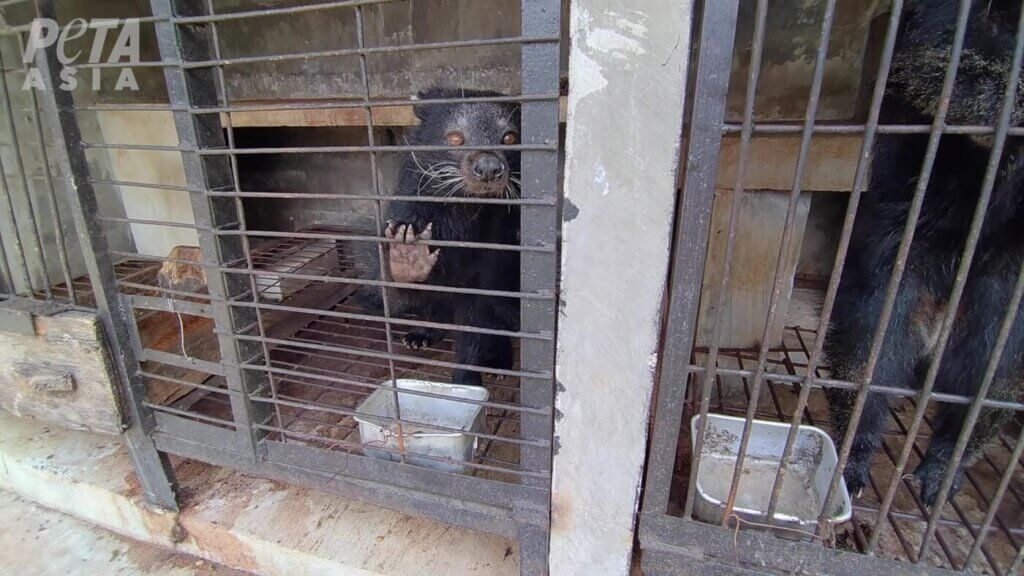
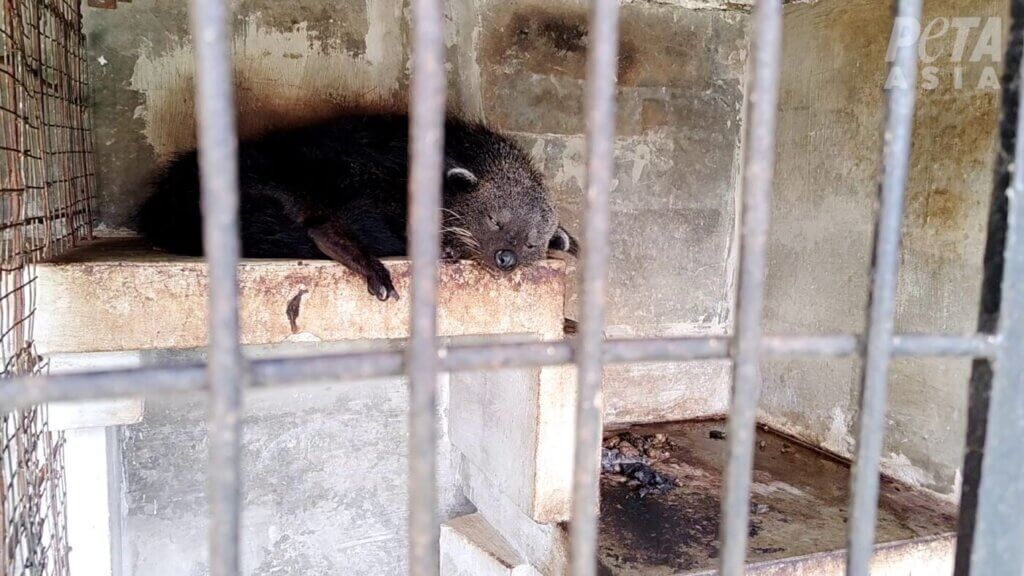
A Decade of Exposing Kopi Luwak Cruelty – and the Abuse Continues
Multiple PETA Asia investigations have repeatedly shown the toll that constant confinement takes on sensitive Asian palm civet cats. At farms, they are usually seen incessantly pacing and spinning inside their tiny, barren cages, usually made from wire. These are signs of extreme psychological distress caused by the anguish and frustration at their intense imprisonment.
The stressed, terrified animal paces and circles, desperate to escape the filthy prison cell in which he’s forced to eat unnatural amounts of coffee berries so that his excrement can be sold as kopi luwak or “cat poop coffee.” After being ripped from his home in nature and made to endure continuous contact with humans, whom he naturally fears, this civet cat has been driven insane. He is just one of the many suffering animals investigators filmed during multiple exposés of kopi luwak farms in Indonesia – the world’s top producer of civet coffee.
‘Wild-Sourced’ Is a Wild Lie
Since PETA Asia’s multiple investigations into the industry have been released, many businesses have made the compassionate decision to remove kopi luwak from their shelves and cut ties with this cruel industry. Others, including distributors in Japan, one of the biggest markets for kopi luwak, and retailers in Taiwan and the UK, choose to continue profiting from animals’ misery for a novelty product despite having heard from us about the rampant cruelty.
Customers and retailers are deceived by producers who deliberately mislabel the beans from captive civet cats as “wild-sourced.” For over a decade, PETA Asia investigators have encountered every trick the kopi luwak industry uses to deceive the public. One farm worker told an investigator, “We label this as wild because even though the animals are caged now, they came from the wild.” Other farmers have openly admitted that gathering enough wild civet cat excrement would be nearly impossible. To mask this, some producers collect a small portion of beans from free-roaming civets, mix it with beans from caged animals, and label the product “wild-sourced.” Others have brazenly told investigators that they label the coffee from caged animals as “wild.” The industry knowingly obtains sham certifications or mislabelled coffee from captive animals, which can then be exported worldwide and sold as “wild-sourced.”
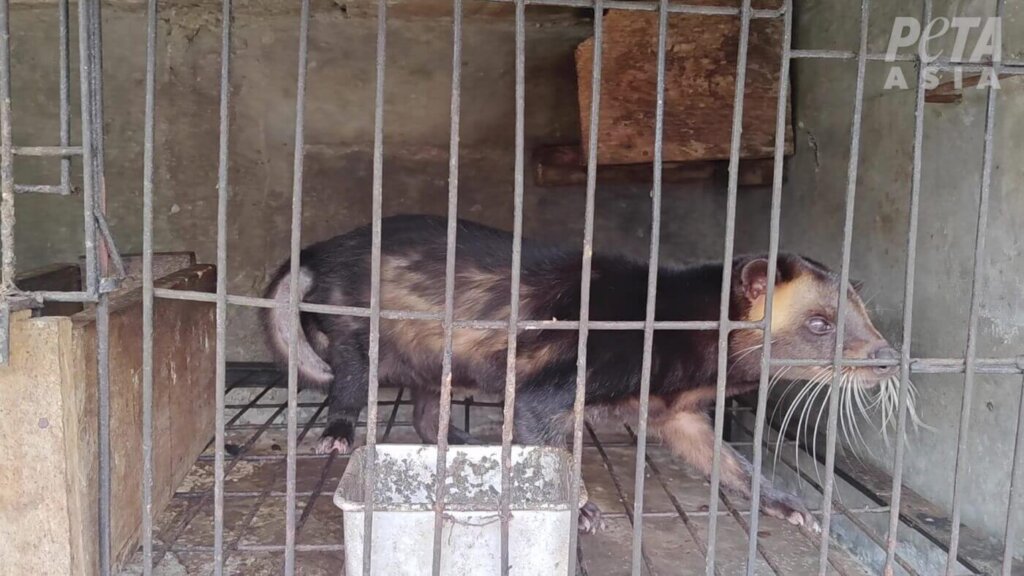
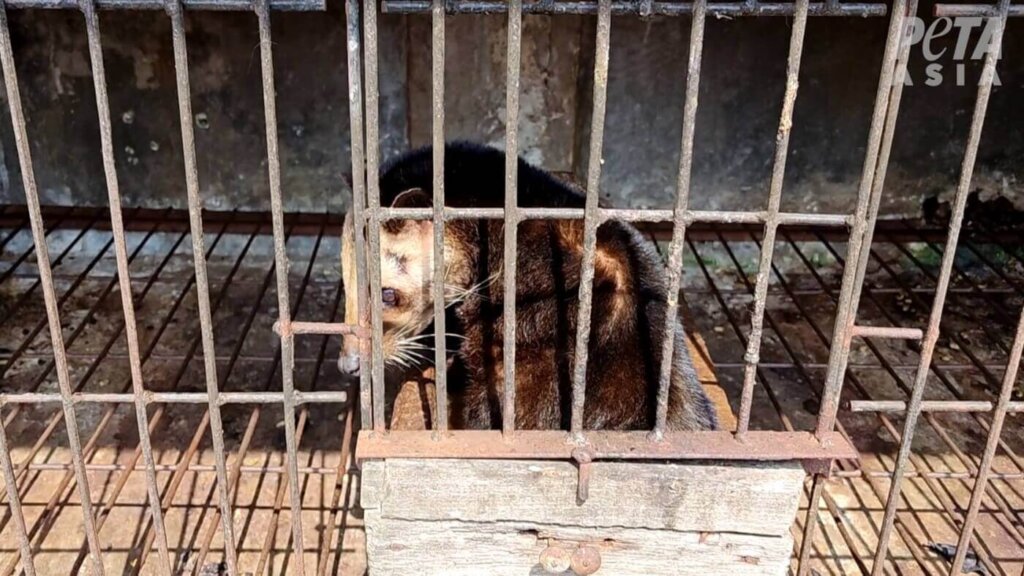

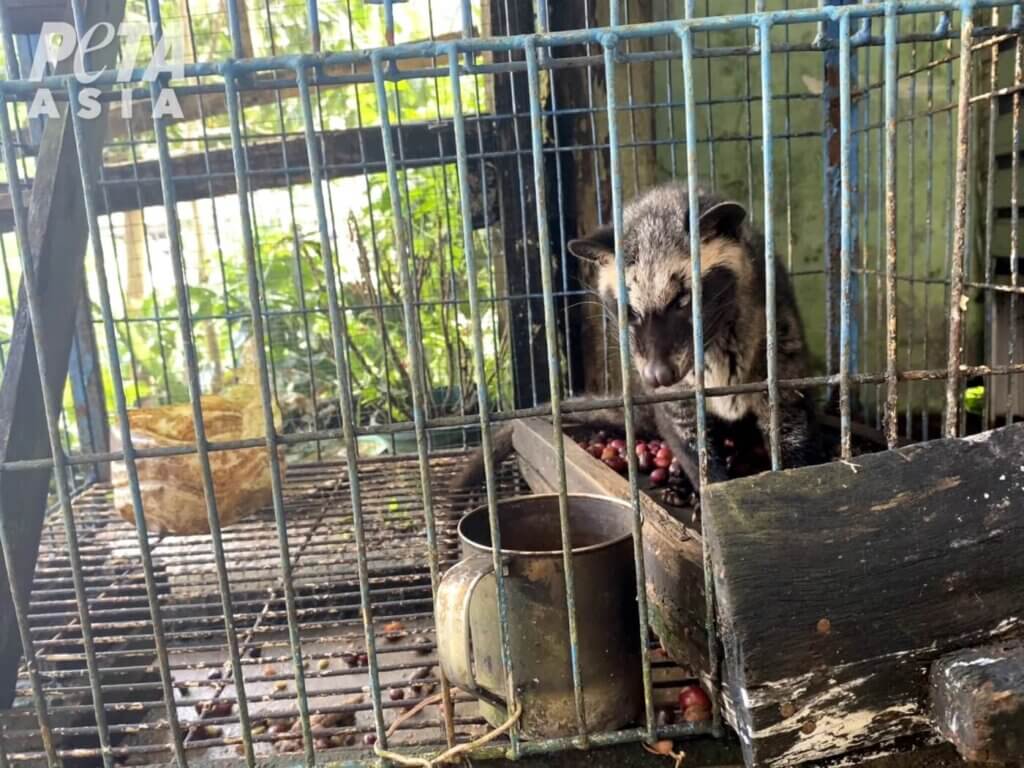
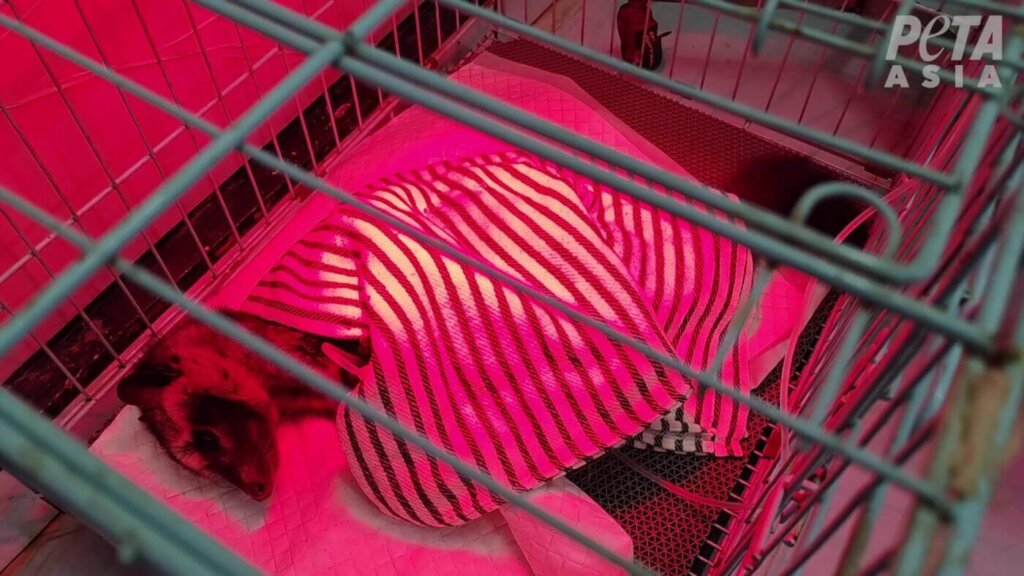
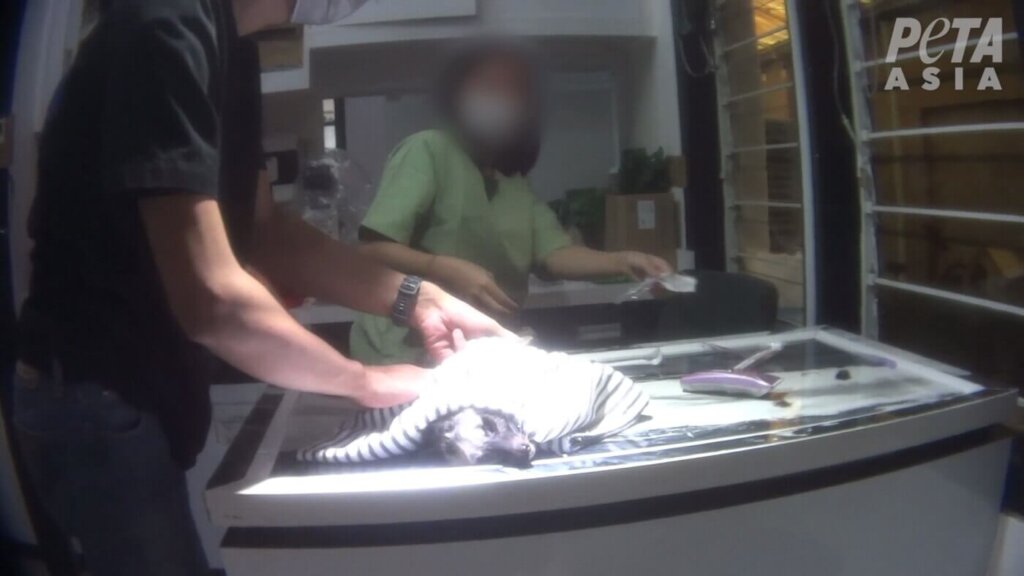
Brewing the Next Pandemic
Stressed animals caged in their waste have low immune systems, making such facilities breeding grounds for zoonotic diseases. SARS, which has an estimated human fatality rate of around 15%, has jumped from civet cats to humans. Scientists have also identified civet cats as a possible “intermediate host” for COVID-19, potentially allowing the virus to mutate and pass from bats to humans.
Civet cats who are “lucky” enough to survive beyond their usefulness to the kopi luwak industry are sometimes sold to live-animal markets, just like the one in which the novel coronavirus is believed to have originated. This puts them in direct contact with humans and provides the perfect opportunity for SARS or some other virus to mutate and jump from one host to another.
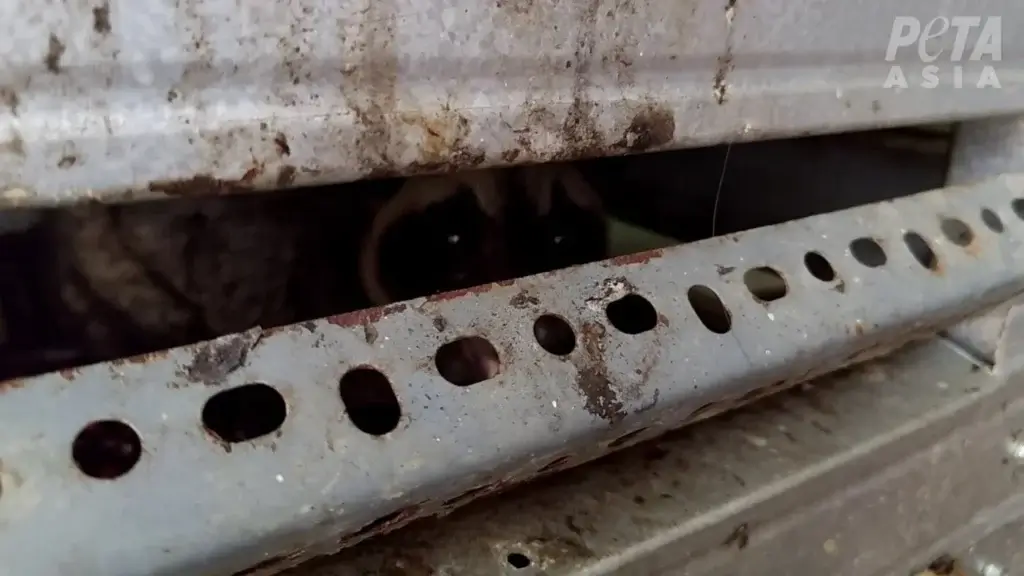
It’s Time to Cut the Crap
Kopi luwak isn’t a delicacy – it’s a disgrace. No matter which country you’re in or what assurances you’ve received, please don’t purchase or drink it.
Please urge these companies to stop funding cruelty to civet cats by ending the sale of kopi luwak today:
Let’s make 2025 a historic year for animals
